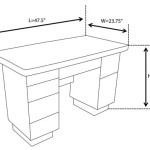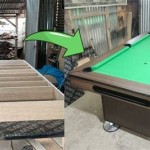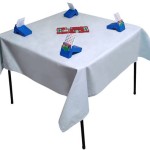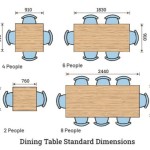What is a Water Table and its Impact on a House Foundation
The water table, an integral part of the subsurface environment, plays a crucial role in the stability and longevity of a house foundation. Understanding its nature and behavior is vital for homeowners to maintain a safe and habitable living space.
What is a Water Table?
The water table is the boundary between the saturated zone, where groundwater fills all the pore spaces in the soil or rock, and the unsaturated zone, where only some pore spaces contain water. The depth of the water table varies depending on factors such as rainfall, soil permeability, and geological formations.
Influence on Foundation Stability
The water table can significantly affect the stability of a house foundation. If the water table rises too close to the surface, it can lead to several problems:
- Hydrostatic Uplift: Water exerts pressure in all directions, and if the water table rises high enough, it can push up on the foundation, causing it to lift or crack.
- Soil Saturation: High water tables can saturate the soil around the foundation, reducing its bearing capacity and making it more susceptible to settlement.
- Erosion: Water flowing through saturated soil can erode the foundation, weakening its structure.
Factors Affecting Water Table Levels
The depth of the water table can fluctuate due to several factors:
- Rainfall: Heavy rainfall can raise the water table, especially in areas with poor drainage.
- Soil Permeability: Permeable soils allow water to infiltrate quickly, while impermeable soils retain water, leading to higher water tables.
- Aquifers: Underground aquifers, layers of saturated rock or soil, can also affect the water table levels in surrounding areas.
Mitigation Measures
To mitigate the effects of high water tables on house foundations, several measures can be taken:
- Proper Drainage: Installing effective drainage systems, such as French drains or sump pumps, can lower the water table around the foundation.
- Waterproofing: Applying waterproofing membranes or coatings to the foundation can prevent water from penetrating and damaging the structure.
- Foundation Reinforcements: If the water table is consistently high, additional foundation reinforcements, such as underpinning or helical piers, can be installed to improve stability.
Monitoring and Maintenance
Regular monitoring of the water table levels around a house foundation is crucial for timely detection of any potential issues. This can be done using simple devices like piezometers or by observing the behavior of vegetation and soil conditions in the vicinity. By proactively addressing high water table conditions, homeowners can safeguard their property and ensure the longevity of their house foundation.

False Water Table And Underground Ducts Trenchless Innovations

What Is A High Water Table Afs Repair

Water Table

Wet Basement Problem False Water Table American Dry

House Foundation Excavation Dealing With High Water Tables Armchair Builder Blog Build Renovate Repair Your Own Home Save Money As An Owner

Moisture Problems High Water Table Signs Part 10 Cities Inspection Service

House Foundation Excavation Dealing With High Water Tables Armchair Builder Blog Build Renovate Repair Your Own Home Save Money As An Owner

Water Tables And Aquifers

How To Build A Foundation In High Groundwater Factor Geotechnical Ltd

Some Call It The Water Table Before Build Series Hilltop Aarow
Related Posts








